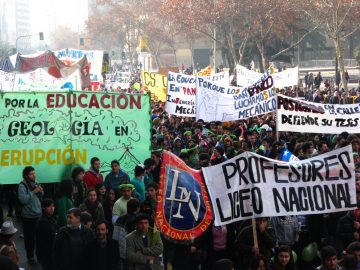
On October 14, the first of many protests this month occurred in Chile. The reason was that there was an accumulation of nationwide disapproval and discontent over economic situations mismanaged by President Sebastian Piñera and his cabinet.
Chile is one of the wealthiest nations in South America; therefore, the economic discontent cannot be too great, right? Wrong. Despite being wealthy, Chile is a nation with one of the most severe issues of economic inequality. The Organization for Economic Co-Operation and Development (OECD) is an intergovernmental organization created with the purpose of stimulating economic progress and growth. The OECD ranked Chile as the highest economically unequal country out of a list of the top 30 wealthiest nations. The income inequality has decreased since 2006. However, it is not enough. In 2017, the income inequality was so severe that the poorer populations of Chile made 8.9 times less money than the richer populations.
While the protests’ main purpose and intention is to fight back against the economic inequality that is present throughout Chile, they began over the price of metro tickets. In early October, the Chilean government decided to add 30 pesos to the price of regular subway tickets. Those 30 pesos were the proverbial straw that broke the camel’s back. The consequence of years of discontentment came through a week later when high school students took to the subway stations in Santiago and protested by jumping over the turnstiles. On October 18, young Chileans set fire to services such as stations, pharmacies, groceries, etc. Despite these horrific acts, a majority of Chileans place the blame on the government’s severe mismanagement rather than the youth of Chile.
The United Nations (UN) has had to step in and investigate the issue as numerous concerns for Chileans’ human rights have risen. Tensions have especially increased since October 25, when a person driving a vehicle ran into a crowd of people and killed two people, one of them being a four-year- old child. The same day, a person was attacked and killed in Santiago by the Chilean police. These deaths have raised the death toll to 18 deaths since the protests began. Chile’s own public prosecution will look into several cases of homicides and sexual violence, including ones involving police officials.
The President of Chile has made attempts to quell the protests, but to no avail, the conflict are likely to escalate over the next few weeks.
For more information, go to The Guardian, BBC, and CNN.